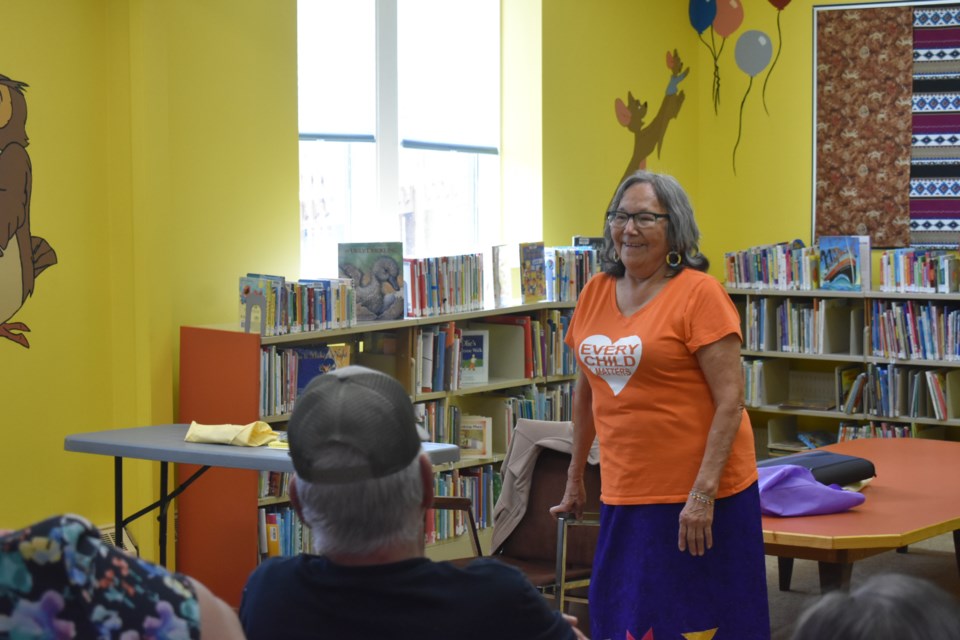KAMSACK - Public speaker Norah Wasacase spoke about a significant chapter in her life as well as indigenous traditions at the Kamsack Public Library on Sept. 29. This shed light on the experiences of her community during a time of upheaval and transition. Wasacase's recollections provide insight into a period marked by significant changes and challenges, particularly with the construction of hydroelectric infrastructure.
Wasacase began by recounting the days when her community, isolated from many urban conveniences, adapted to their unique circumstances. She spoke of her grandparents' resourcefulness, mentioning how they mixed dry chokecherry berries, and employed drying techniques to preserve food. The absence of alcohol in her early years was a notable aspect of her upbringing, attributed to the remoteness of their location.
Wasacase said, “Nobody had alcohol because we had no way of getting it or taking it to our isolated homes. They used to have dogs run from The Pas to Cedar Lake by the dogsled in the winter.”
She discussed the impact of Manitoba Hydro’s actions on her community, saying, “Manitoba Hydro told us we're about to move. They didn't even come and say we're gonna have a meeting with all the people and tell them how. There were only three people who landed by plane, the Indian agent, a lawyer, and Manitoba Hydro. Three visits, my dad was telling and they arrived and said, 'We're building a dam in Grand Rapids and you guys have to move or you will drown.'”
With the displacement of her community, the transition to a new place brought unexpected challenges. The introduction of money, cars, and a change in lifestyle led to some concerning developments. Alcohol consumption became prevalent, leading to profound changes in the community.
“Everybody was devastated. So alone, they came to the new place and started getting money building the place, getting a paycheck every two weeks. And you know what? Everybody started drinking. I saw my parents drinking and I couldn't believe how changed they were. And I had already started residential school. My first year coming back, they're already living there. And they have cars, nobody ever had a car where we came from. People who were drinking were having accidents and killing each other by driving.”
Wasacase also spoke about how the buffalo was a significant part of indigenous culture, saying “They live off the land you know? No preservatives, no salt, no sugar, no flour. So they were very healthy people physically, emotionally and spiritually. There were also nomadic people in the prairies. My daughter learned about it in school. She told me what she learned, saying, ‘Did you know that the buffalo was our department store?’ I said, ‘Oh how was that?’ She said,‘Well, the buffalo gave us our food and we can make tools out of it and clothing. Our shelter and our blankets are from the buffalo.”
Don't count on social media to deliver your local news to you. Keep your news a touch away by bookmarking the Kamsack Times' homepage at this link.
Here's why you should bookmark your favourites.
Bookmark SASKTODAY.ca, Saskatchewan's home page, at this link.




